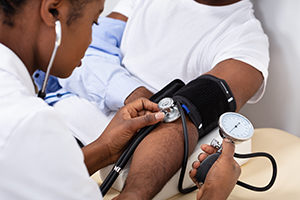December 2023 Dispatch for the CV Team
This month: HDL tied to dementia, nurses learn neurodiversity, cardio-oncology meets cardio-obstetrics, and more.

Every month, Section Editor L.A. McKeown curates a roundup of recent news tidbits from journals and medical meetings around the globe.
More research is needed to address what needs to happen after cardiac arrest, including neurological, cardiac, pulmonary, and general critical care management, according to a consensus statement from the American Heart Association and the Neurocritical Care Society. Published in Circulation, the statement says high-quality studies are needed in these areas to inform practice guidelines.
 Levels of HDL cholesterol above 80 mg/dL may signal dementia risk in older adults, according to data from the ASPREE trial. In the analysis, published in The Lancet Regional Health – Western Pacific, those with very high HDL at study entry had a 27% greater risk of dementia than participants with optimal HDL levels. The association with dementia was greatest in those aged 75 years and older, with a 42% increase among those with very high HDL compared with similarly aged individuals with optimal HDL.
Levels of HDL cholesterol above 80 mg/dL may signal dementia risk in older adults, according to data from the ASPREE trial. In the analysis, published in The Lancet Regional Health – Western Pacific, those with very high HDL at study entry had a 27% greater risk of dementia than participants with optimal HDL levels. The association with dementia was greatest in those aged 75 years and older, with a 42% increase among those with very high HDL compared with similarly aged individuals with optimal HDL.
In a study of adults with congenital heart disease, regular contact with a cardiology specialist decreased the risk of all-cause death at 90 days and 1 year after a heart failure (HF) hospital stay. Writing in the Journal of the American Heart Association, investigators say the data reinforce the importance of regular specialist care as a preventive strategy for improving outcomes in this group of patients at high risk for HF-related hospitalization.
Compared with white patients, Hispanic patients with diabetes and PAD are more likely to report being unable to afford medical care due to cost, buy prescription drugs from another country, and delay medical care due to work and child care, according to a study published in Vascular Medicine.
Telemedicine visits with a registered dietician for medical nutrition therapy are as effective as in-person appointments for improving cholesterol levels in patients with hyperlipidemia, data suggest. The results are consistent across subgroups including sex, ethnicity, body mass index, statin intensity, and cholesterol medication use, researchers note in the Journal of Clinical Lipidology.
 Multilevel strategies are needed to achieve equitable representation of Black patients in clinical trials. A paper in Nature Reviews Cardiology outlines a number of solutions at the participant, research and health system, and funder levels for strengthening diversity among those enrolled, as well as among those holding leadership positions within clinical trial networks.
Multilevel strategies are needed to achieve equitable representation of Black patients in clinical trials. A paper in Nature Reviews Cardiology outlines a number of solutions at the participant, research and health system, and funder levels for strengthening diversity among those enrolled, as well as among those holding leadership positions within clinical trial networks.
There is an increasing need for nurses to be well informed about neurodiversity to better understand the challenges that patients with a range of neurodevelopmental conditions may face, an editorial in the Journal of Clinical Nursing asserts. “A growing number of advocates and organizations are calling for mandatory repeated training in neurodiversity for all public facing professionals as part of continuing professional development,” the authors write. “This training should be co-delivered by neurodivergent professionals to ensure better outcomes.”
In JACC: Case Reports, investigators describe efforts by teams from cardio-obstetrics, cardio-oncology, maternal-fetal medicine, and oncology to care for a patient who presented with stage IIb pregnancy-associated breast cancer (PABC) at 8 weeks’ gestation with a twin pregnancy. They explain the chemotherapy decisions that were made to reduce the risks of cardiotoxicity and balance the health needs of the mother and fetuses following a right radical mastectomy with axillary lymph node dissection at 11 weeks.
News Highlights From TCTMD:
Who Benefits Most from Semaglutide and How Long Will That Take?
To Close Equity Gaps With New PCI-Capable Hospitals, Location Matters
Don’t Avoid Statins in Elderly, Frail Patients: Two Retrospective Studies Argue
Daily Texts Boost Self-care in HFrEF but Don’t Impact Outcomes
Optimal Care Reported in Less Than Half of Adults With ASCVD
L.A. McKeown is a Senior Medical Journalist for TCTMD, the Section Editor of CV Team Forum, and Senior Medical…
Read Full Bio


Comments